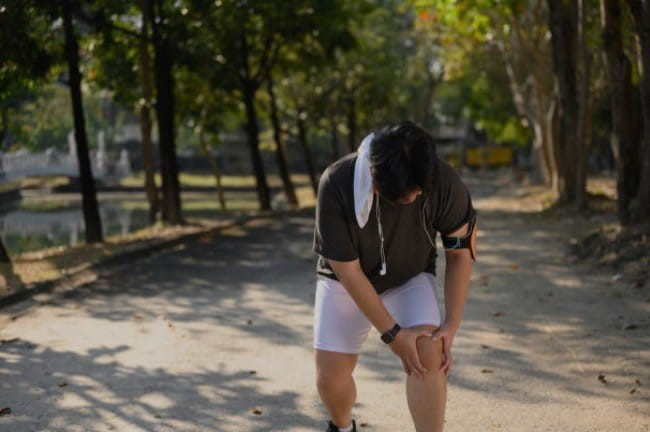Starting a run too fast can be thrilling at first, but will cost you later when you need energy to finish running, but cant find it.
It does more harm than good.
In this article, we’ll discuss;
- Tips to know if you’re running too fast
- Dangers of running too fast, and
- How to avoid running too fast
Let’s jump right into it.
Ways to Tell if You’re Running Too Fast
i. You’re constantly out of breath – You should be breathing faster than usual but not out of breath.
ii. You cannot hold a conversation – Not just yes and no, but a short-sentence conversation.
iii. You stop regularly – This is a sign that you should run slower.
iv. You find it difficult to finish your run – Run gently to save energy to finish.
v. You’re experiencing stitches
vi. You’re not enjoying the run
Risks of Starting a Run Too Hard
i. Injuries

By starting too fast, it means you’ve not allowed your body to warm up. This can cause severe muscle tears, knee sprains, and ankle twists.
ii. Burnout
When you burnt out, you feel depleted, exhausted, and lack motivation to keep running.
iii. Decreased Performance
Because of the body strain, fatigue, and lack of enthusiasm for running, instead of improving, your performance will decrease.
How to Avoid Starting a Run Too Fast
i. Let Your Body Warm-up
Do warm up exercises and run slowly during the first few minutes to help your body fully warm up for physical activity.
ii. Hold Back at The Beginning
Instead of sprinting right out of the gate, hold back and allow your body to naturally fall into a comfortable pace.
iii. Listen to Your Body
Always check in with yourself and adjust depending oh how you’re feeling.
iv. Escape the PB Rat-Race
The need to always chase a Personal Best (PB) is what makes most runners start a run too hard too fast.
If you desperately want to improve your running stats, prioritize mindful pacing, efficiency and consistency, and you’ll gradually start to see improvements.
Conclusion
As you’ve seen above, starting a run too fast is not a smart move if you want to be a happy, and healthy life-long runner.
Therefore, moving forward, focus on running smart and not hard.
Read This Next
How to Enjoy Running Again After a Long Time Off
Beginner Trail Running Mistakes You’re Unknowingly Making
11 Greatest Benefits of Regular Running Backed By Research
12 Exceptional Mental Tricks to Push You Through Running Pain

One Comment
“What a gem I’ve discovered! The thoroughness of your research combined with your engaging writing style makes this post exceptional. You’ve earned a new regular reader!”